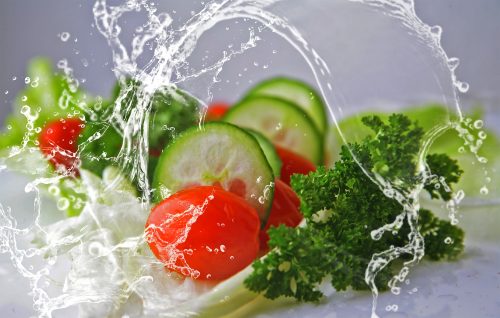Did you know that the psoas muscle is one of the most important muscles in the body? It is responsible for a wide range of movements, including walking, running, and jumping. It can also be a source of pain if it becomes inflamed.
In this blog post, we will discuss the causes of inflammation of the psoas muscle and the way thefood can play a role in prevention and treatment. Stay tuned for more!
Psoas anatomy
Le psoas is a large muscle that runs from the lower back to the top of the femur. It is often called the "hip flexor" because it is responsible for hip flexion, as well as assistance with other leg movements.
Le psoas is surrounded by several other muscles, including the iliacus, which also attaches to the bone of the hip. Together these two muscles are known as iliopsoas. the psoas plays an essential role in many activities, such as walking and running.
It also helps to stabilize the spine and basin when we are still. Due to its importance in movement and balance, it is important to keep the psoas healthy. health needs and free from injury.
What is psoas inflammation?
Inflammation of the psoas, also commonly called psoas tendonitis, is a condition that results from irritation and inflammation of the psoas tendon.
The psoas tendon is a thick rope-like structure that runs from the lower back and down to the basin and to the femur, connecting the psoas muscle to the joint of the hip.
This muscle is responsible for hip flexion and, when irritated or inflamed, it can lead to pain and stiffness in the lower back and hip area.
Inflammation of the psoas is usually caused by overuse or repetitive movements that strain the tendon, but it can also be triggered by trauma or injury to the area.
Inflammation of the psoas is a very common condition that results in dysfunction and contracture of this muscle, which usually causes symptoms in the lumbar spine. However, with proper treatment, most people can recover completely.
Treatment of psoas inflammation
When the psoas muscle is inflamed, it can cause pain in the lower back and hips. There are several treatment options for inflammation of the psoas.
The goal of treatment is to reduce pain and inflammation, and promote healing. Treatment may include:
Medical treatment of psoas inflammation
The medical treatment of a inflammation of the psoas may include the following:
- Rest : When the muscle psoas is swollen or painful, it is important to give it time to rest and heal. This means avoiding strenuous physical activity or movements that make the pain worse.
- Medicines: Medicines can help relieve the pain et inflammation of the psoas. Nonsteroidal anti-inflammatory drugs (NSAIDs), such as ibuprofen, are often prescribed to treat neck pain. psoas. Corticosteroids, another medication option, can be injected into the psoas muscle to relieve pain and inflammation.
- Kinesitherapy (Physiotherapy): Physical therapy (physiotherapy) may be prescribed to help reduce pain and inflammation of the psoas. Physiotherapy exercises can help stretch and strengthen the muscle psoas.
- Surgery : In some cases, surgery is needed to treat psoas inflammation. Surgery is usually reserved for severe cases ofinflammation of the psoas who do not respond to medical or physiotherapy treatments.
Alternative treatment for psoas inflammation
The treatment of inflammation of the psoas usually includes rest, ice, and physical therapy. However, there are also alternative treatments that may be effective in reducing inflammation and relieve pain.
- Supply : certain foods can help reduce inflammation of the psoas, while others can make it worse. Foods rich in vitamins E and B, such as walnuts, almonds and hazelnuts, can help relieve inflammation.
- Massage therapy: Massage therapy can help relieve pain and inflammation of the psoas. Cold therapy, such as cold compresses or ice cubes, can also be used to relieve pain and inflammation.
- aromatherapy: Aromatherapy is a technique that involves inhaling the vapors of essential oils to relieve pain and inflammation. Essential oils, such as rosemary, chamomile and ginger, can help reduce inflammation of the psoas. They can be applied directly to the swollen or painful area, or they can be added to a warm bath.
- Natural medicine: Natural medicine is a holistic approach to wellness that uses natural remedies to prevent and treat disease. It may include the use of herbs, vitamins, minerals, and massage. The natural medicine can help relieve pain and inflammation of the psoas.
- Acupuncture: Acupuncture is a technique in traditional Chinese medicine that can be used to relieve pain and inflammation. The needles are inserted into specific points on the body to stimulate the nerves and muscles.
- Yoga: Yoga can help stretch and strengthen the psoas muscle. It can also help reduce pain and inflammation.
- Supplements: certain supplements may help reduce psoas inflammation. Natural anti-inflammatories, such as curcumin, are often used to treat inflammation. Omega-3s, vitamins D and B6 can also be used to reduce inflammation. It is important to speak with a doctor before taking any supplements, as some may interfere with prescribed medications.
It is important to consult a doctor before starting any alternative treatment for inflammation of the psoas. Some treatments may interfere with prescribed medications or make symptoms worse.
What foods to favor?
Although inflammation of the psoas can be treated with medication, there are also several foodstuffs which can help relieve symptoms and promote healing.
These foods are rich in natural anti-inflammatories and can help reduce pain, inflammation and the risk of relapse.
here are some foodstuffs to include in your diet if you suffer from inflammation of the psoas :
- Fish : Fish is an excellent source of omega-3 fatty acids that help reduce inflammation. The best fish options are salmon, tuna and trout.
- Seafood : Seafood is also rich in omega-3s. The best options are oysters, mussels and crabs.
- Green vegetables : Green vegetables, such as broccoli, collard greens and lettuce, are rich in anti-inflammatory vitamins and minerals.
- Fruits: Fruits, especially citrus fruits, contain high levels of vitamin C, an antioxidant known to reduce inflammation.
- Nut : Nuts, such as almonds, walnuts, and hazelnuts, are rich in vitamins E and B, two vitamins that help reduce inflammation.
By incorporating these foods into your diet, you can relieve the symptoms of inflammation of the psoas and promote healing.
If you suffer from inflammation of the psoas, you should consult a doctor or nutritionist to advise you on the food plan best suited to your case.
What foods to avoid?
Certain foods can make it worse inflammation of the psoas and should therefore be avoided. These foodstuffs are high in saturated and trans fatty acids, added sugars and gluten. Here are some examples of foods to avoid:
- Red meats and charcuterie: Red meat and deli meats are high in saturated fatty acids, which can make inflammation worse.
- Hydrogenated vegetable oils: Hydrogenated vegetable oils are high in trans fatty acids, which can also contribute to inflammation.
- Sugar : Sugar is a stimulant Inflammatory. It is present in candies, cookies, pain and sodas.
- Gluten: Gluten is a protein found in wheat, barley and rye. It can aggravate psoas inflammation in people who have celiac disease or gluten intolerance.
By avoiding these foods, you can reduce inflammation of the psoas and relieve symptoms. If you suffer from inflammation of the psoas, consult a doctor or nutritionist for advice on the best diet diet for you.
Resources
Videos dealing with anti-inflammatory diet:
Link between food and certain common pathologies:


